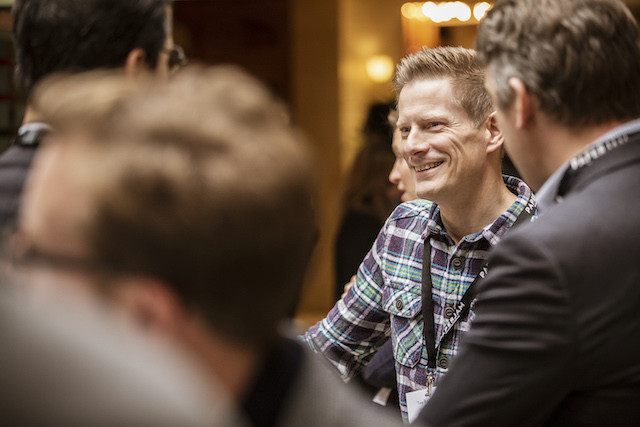Over the decades, the country has focused in key, often niche, sectors—steel, finance and space mining. “They’ve got a pretty good track record of keeping viable models,” Bankhead says. “Biotech is one of them.”
No matter what this field will hold for Luxembourg in future, he says, “they put their money where their mouth is.”
Techcyte Europe, which set up in Luxembourg in 2017, develops a cloud-based software solution which uses deep-machine learning to automate laboratory tests which usually tend to be performed through microscopy or otherwise manually. The grand duchy site is based at the Esch-Belval Technoport.
Efficiencies in veterinary, air quality & beyond
Of course, this holds benefits for the medical field—cost and testing efficiencies, to name a few. But the company has recently been doing proofs-of-concept in the food production industry and also developed into the realms of air quality control and the veterinary field.
In the case of the latter, Bankhead says that last year they signed a large deal with a major medical supply and diagnostics company which works in the detection of parasites in companion animals. It’s a space in which he sees the possibility of commercialising a bit more quickly—“humans are working on those algorithms as we speak”--given that it’s less regulated, e.g., by the Food & Drug Administration in the US.

Techcyte uses software-as-a-service to improve lab efficiencies. Image: Video screengrab
Air quality control is another realm which Bankhead thinks will prove competitive. “Today we’re focusing on air quality labs that perform the tests,” he says, adding they “could go direct to consumers, offering mould and allergen monitoring and detection.”
The company envisions a new kind of relationships with labs as well. “We partner with laboratories that invest in their own time and expertise in helping us develop these algorithms, and they become clients after. We work with them in that context.”
And, despite using artificial intelligence, Bankhead says that Techcyte doesn’t remove the human element--as is the case in some fields of automation--which have potential to remove the human element, “we make it so that the operator doesn’t have to be bent over the microscope,” so he or she can “focus more on the actual diagnosis”.
New verticals
Looking ahead, Techcyte is continuously trying to improve efficiencies. “We’ve managed to get an 8-minute lead time down to under 2 minutes, one of 15 minutes to under 15 seconds.”
Bankhead says they’ve also had to delve a bit deeper into different parts of the value chain--image acquisition, for example, or the digital slide scanner market which “is growing and developing, but it can be frustrating at times because of scan qualities…our core business only comes at the point we get the image.”
Next steps will also be scaling, as well as branching out. “We are discovering many new verticals [where] we now have both potential interest and we can do it, but we need the resources to invest into one of those verticals.”
